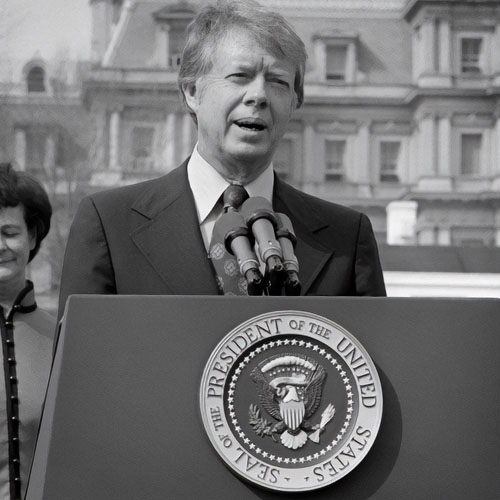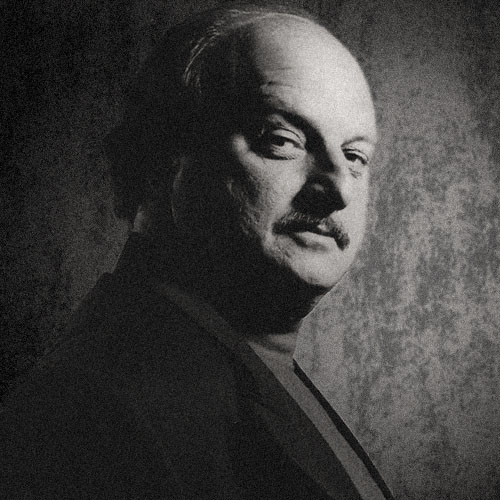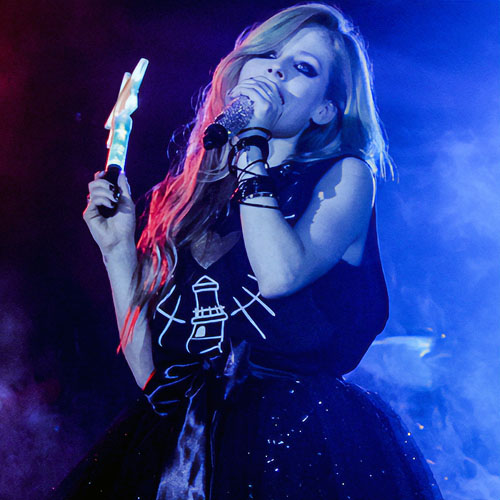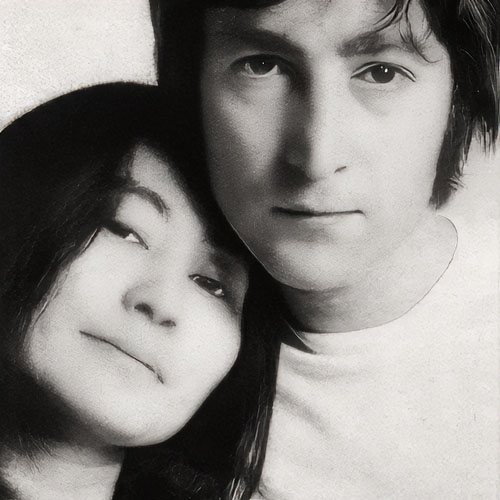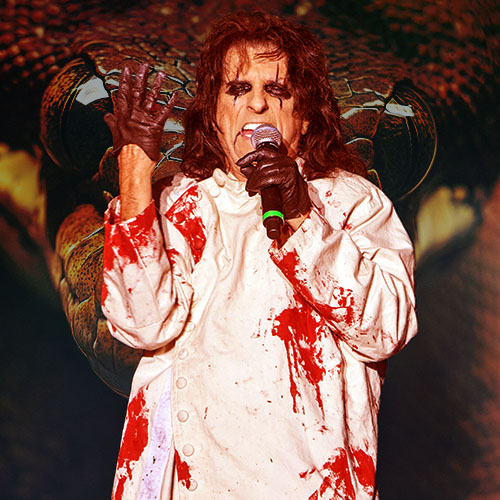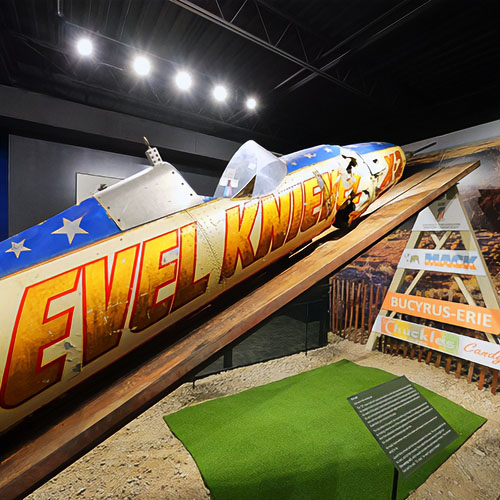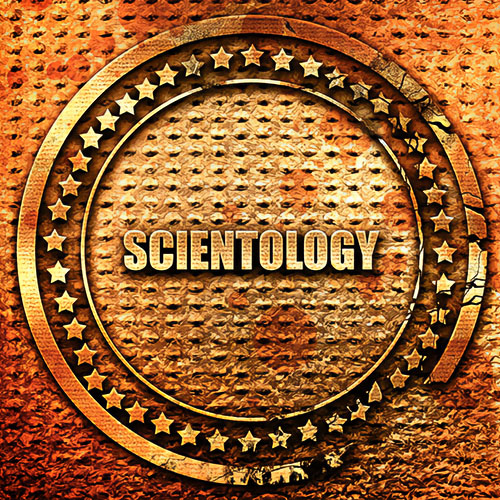“I think Jim Jones was a dictator. And I’ve started hating my father. All I can say is I looked at a picture of him, after crying over all the other pictures, and he just didn’t seem punished enough.”
Stephan Jones
More than any other single person, Stephan Gandhi Jones — just nineteen years old — carries with him into the future the terrible legacy of Jonestown. He is the only son born in legal marriage to Jim Jones, the Socialist priest who led his Peoples Temple flock to their deaths in Guyana. Stephan fought continually with his father. he says, arguing in public meetings against “Revolutionary Suicide.” And now, he says, he hates the man-would have killed him, if that’s what it took to stop the death ceremony, if he had been in the commune that day.
Still, for many Americans, Stephan Jones is like the son of Frankenstein, an extension of his father. Many will never be able to think of Stephan Jones without recalling the cult leader. Stephan is tall and handsome and, like his father, magnetic. In a room with others, he is immediately in charge. He is also distinctly different from his father — physically bigger. a young man of unusually calm and deliberate speech and movement. But there is no question that he is his father’s son.
In the final months of Jonestown, he saw himself as the leader of a faction that quietly opposed his father. These days he sees himself as the leader of the survivors of Jonestown and, in many ways, as their spokesman. He’s not talking about reviving the commune. But he thinks he has a responsibility to help the surviving people who followed his father to South America. He wants to explain to outsiders, too, that there was a time when Jonestown was a beautiful place to live. He admits that it was austere and the work was hard. but he loved jockeying a caterpillar tractor through the fields and felt a sense of accomplishment in looking at the tropical houses he’d helped build.
Some of the survivors, especially those who defected with the help of Congressman Leo J. Ryan on the day he was killed by cult gunmen, have a different view of Stephan Jones. Some of them are frankly afraid of him. He may have quarreled with his father, they say, but what young man doesn’t? He was still a part of the Jones family and thus a part of the inner circle, the Jonestown elite, they point out. He was a member of the Jonestown basketball team — which seemed. some defectors say, synonymous with the Temple security force. And there were times when he was at his father’s side as a bodyguard. Some defectors even tell of having seen Stephan beating cultists who dared to run against the communal tides.
At times, when he talks about his father, the young man’s dark eyes flash and his voice goes brittle. There is loathing and contempt. But even now not all the admiration is gone. “Eventually, he just lost control,” Stephan said one morning in the breeze-swept villa of the Peoples Temple in Georgetown, Guyana, where Gregory Rose and John Jacobs conducted this interview.
“That was the whole problem. He Just lost control — mainly of himself,” Stephan continued. “I can’t totally condemn a man. I can condemn what he’s done, but not his whole life.”
Stephan Jones was born in Indianapolis, Ind., in 1959. A short time later his father started the Peoples Temple, blending fundamentalist religion with his own abstract form of socialism, promising love and communal support to the poor, to prostitutes, to pimps, to drug addicts, and, eventually, to young, upper-middle-class idealists. The Peoples Temple was Jim Jones’s obsession, and it was Stephan Jones’s life. The Temple’s history is his history the first members were his babysitters; their children, his playmates.
“I’m like a man without a country,” Stephan said after the mass deaths. “Everybody’s gone now.”
When he was six years old, his father moved everyone — about 100 men and women and their young ones — to the little northern California town of Redwood Valley in the wine country, about 100 miles north of San Francisco, saying that this would be a safe place to ride out a coming nuclear holocaust. Two years later — at the age of eight — Stephan learned that his father had told his then ailing mother, Marceline, that he was sleeping with other women. It broke her heart, Stephan says, and drove the first wedge between father and son. Stephan says Jim Jones fathered at least two children with other women. He also adopted half a dozen youngsters — white, black, and oriental.
Within a few years in California, Jim Jones had a fleet of eleven buses, a new parsonage and church, and a baptismal swimming pool. Then, in the early 7Os, he opened churches in San Francisco and Los Angeles.
In December 1973 — when Stephan was fourteen — he flew to Guyana with his father and mother and more than a dozen other Temple members. “We wanted to look the place over,” Stephan recalled. “We had plans to move somewhere. Marceline mentioned that she and Dad had stopped by here in the early ’60s on a trip back from Brazil. So, we went out to Matthews Ridge, and they showed us around.”
Early the next year Jim Jones obtained a lease from the government of Guyana for several thousand acres of raw jungle about thirty miles from Matthews Ridge, not far from the border of Venezuela. In the next two years, a handful of pioneers from California cleared bush and put up the first buildings in what became known as Jonestown. Then, in late 1977, after several critical newspaper and magazine articles about the Peoples Temple had appeared, Jim Jones decided it was time to leave the United States. It was then that Stephan and most of the others arrived in Guyana.
The deterioration of Jim Jones has not been neatly charted. There are some, for example. who say he seemed mad nearly thirty years ago. Stephan says he noticed an instability most distinctly in the days just before the poison was poured.
Shortly before the final day, Stephan and a dozen other members of the Jonestown basketball team had made the 120-mile trip to Georgetown to prepare for a tournament with local teams. And that, perhaps more than anything else, is why he is alive today When Jim Jones received word that Congressman Ryan was on his way to Jonestown, he ordered the basketball team back. But Stephan and the others refused.
“At first he said we could be kidnapped, that this was the kind of person who could provoke us to do some kind of contradiction,” Stephan said. “The next day he told us to go out and meet them at the airport, look impressive, look tough — kind of ’We’re not happy with you being here. Why don’t you leave us alone?’ The next day he told us to move out of the house. We just laughed at the order and said it was dumb.”
For Stephan, the first bulletin of the tragedy that was unfolding in Jonestown came early the evening of November 18, when he returned to the comfortably furnished villa — the Temple’s Georgetown headquarters, where more than forty other cult members were staying — and found Sharon Amos and her three children lying dead in their own blood in a yellow-tile bathroom, their throats slashed with a kitchen knife. “I knew something was going on out there,” Stephan said. “We’d had the suicide drills, and I knew something was happening.” Radio contact with Jonestown had been broken, however, and it was hours before his suspicions were confirmed.
The Guyanan police — themselves unaware of what was happening in the jungle commune — went to the villa and began questioning cultists. Eventually, Charles Beikman, a forty-three-year-old former U.S. marine who can neither read nor write, signed a statement saying he had killed Mrs. Amos, who was the Peoples Temple’s representative in Georgetown and, many say, an overly aggressive and unpleasant woman. Beikman said he had helped the woman murder her children.
Stephan wrote out Beikman’s confession. “I did it because I was told by police to tell Beikman that all of us would be charged with murder if he didn’t make a statement,” Stephan said.
Weeks after the deaths, Stephan was called in to testify in the Beikman case. It was a steamy afternoon, and he was feeling cranky. He felt that Carlton Weithers, the thin, ascetic prosecutor, was pushing him. Finally, the question was put directly, a question that had been on the minds of many who had puzzled over how the Amos deaths might have come about in a house literally filled with people: had Stephan Jones been part of a conspiracy to murder Sharon Amos and her children?
The fiber snapped. “All right,” Stephan told the startled court. “I did it. I killed these people, and I’m trying to put it off on Chuck.”
Later, outside, Stephan said his remarks had been patently absurd, a mocking response to what he had considered an absurd question. But the Guyanese authorities chose to take him seriously. “Who are we to say he did not mean what he said?” asked the prosecutor. “He has no right to be sarcastic. This is not a joke. It’s a serious matter. We are saying that he is part of the plan and that his conscience spoke out there.”
And so, shortly before Christmas, Stephan Jones went to jail. A magistrate would decide if he would stand trial.
Gregory Rose, writing a history of the Peoples Temple for the New York publishing house of Grosset and Dunlap, and John Jacobs, assigned by the San Francisco Examiner to cover the incredible Jonestown story, talked with Stephan Jones for Penthouse just before his courtroom testimony in Guyana.
Perhaps the question most people have been asking about what happened in Jonestown is why? Why would almost a thousand people kill themselves and their children? What kind of power did your father have over them?
First of all, I don’t think a lot of people had a choice. They may have done it voluntarily, but it was as if there was no other choice. What else could they do? To me, that’s not really voluntary.
You’ve got to realize the picture that Dad would paint for them after Ryan was killed. He probably told them that they would be deported, which would mean that they would have to go back to the States, and then there would be concentration camps. He would say that there’s no hope. They’re going to come and take our children away, and our children are going to suffer — they’re going to be tortured. And wouldn’t you rather have them die with you here, and die painlessly, than to have them tortured and have to suffer for the rest of their lives? And people would come up and say, “Yes, if that’s the case, I think we should do it.”
I’m not saying they necessarily believed that, but they said what they thought Dad wanted to hear. That’s the way a lot of the earlier meetings went.
But didn’t anyone stand up to him?
Sure. I did. One time I was arguing with him, and he said, “You’re obviously scared to die.” And I said, “Bullshit.” That was unheard of, to say that to Dad. So he repeated, “Yes, you are.” And I said, “I say I’m not.” And by this time everybody was jumping up and saying, “Sit down, you’re out of line! Why don’t you shut up? How can you talk to your dad like that?”
As I said before, you have to understand the picture that he would paint for everyone. It wasn’t as if somebody just walked up and said, “Hey, drink this.” Dad would give reasons — regardless of whether they were true. He had an answer for everything — everything. He had a button that he pushed up there or something. A lot of these answers contradicted themselves. I think he really thought we were stupid.
But when your father would say that the CIA or U.S. troops were coming to deport you, weren’t there people who would say, “Let’s go fight those bastards”?
Yes, many people said that. But you know what Dad said? He’d ask them, “Do you want to fight the soldiers that are just following orders? Do you want to kill guys who are just doing what they’re told to do?” Which, to me, is not such an illogical argument. But you had to know my dad.
But we still don’t understand. Even during the practice suicide drills, out of a thousand people, didn’t somebody have the balls and the brains to get up and say, “This is crazy”?
You don’t handle a crazy person by walking up and saying, “You’re crazy.”
No — he’ll freak out. So you just try to talk to him. Let me tell you about the first meeting I recall where this was talked about. We were called together, and everybody went to the pavilion. I think Dad had just read something about revolutionary suicide. So he asked us how we felt about it. But as I said before, you have to understand that in Jonestown you didn’t always say what you felt. You said what you thought Dad wanted to hear.
Why?
Because you wanted to be accepted. I suppose fear was involved, too. There were guns out.
You mean, even at this first meeting people had guns to their heads?
No, the guns were out as a protection.
Protection against what?
Whatever Dad wanted to make up. But the worst thing anybody could have happen to him was to have Dad chastise him publicly That was the worst fear… that you’d be yelled at. I’ve had guys come to me and say, “God, I’d rather be beat up than have him yell at me and humiliate me.” But anyway, at this meeting, Dad called everybody up to give his or her opinion.
Were people chosen in advance to go up and have their say?
No. I think some of the people who spoke were told to go up, but a lot of people went up there by themselves. What I’m trying to say is that I think some people did believe that suicide would be the right thing to do under certain circumstances. I would even feel that way… if they were really coming to take my child away and torture him — I’d rather “take care” of my child myself and save it from suffering, right? If I really believed that was going to happen.
But a lot of people just said what they thought Dad wanted to hear. So you never had an honest situation. It was a bunch of bull. I got up and said, “Don’t you see how they’re going to look at us? Don’t you see that they’re going to discredit anything we’ve ever done, anything we’ve ever built, anything we’ve ever believed in? They’re just going to say that we’re fanatics and that we’re crazy, and they’re not going to understand’” But Dad always had some fantastic argument, and he had the support. I didn’t. Anyway, if you got up in front of other people and told him it was wrong, even if he knew it was wrong his ego wouldn’t let him back down to say you were right.
But I never dreamed he’d do what he did. I never dreamed it.
Were you ever punished for opposing him?
Yes. Anytime I got up in front of everybody, he made a point to tear into me, humiliate me. And he’d always say, “I have to do this for him. I have to prove that I don’t favor him.”
Why was this humiliation so terrible? Many people have been humiliated without giving in to the kind of control your father possessed.
You’ve got to understand how he was built up as a figure. To a lot of people he was it. You see. I never looked at Dad as the leader. I looked at him as a human being. But a lot of people didn’t, and he encouraged people not to. He made a lot of people think that what they believed in and Jim Jones were one and the same. So you never knew when somebody whom you might talk frankly to might report you. For example, a man confided in one of the secretaries once. And she went back and told everything to Dad. And this man said to Dad, “I know who told you.” But Dad would always say, “No, no. That’s not who told me. I have special devices that I can hear you with.” That wasn’t true. He had no bugging equipment.
So a person could hate Jonestown or hate Jim Jones more than anything, but he’d have to put up the greatest front, because if he discussed it with someone. he might get nailed. And then he’d be in front of the 914 people that he lives with every day, and he’d feel like they hate his guts, and he’s got to go to work the next day and see every one of them. That’s humiliating.
But wasn’t there opposition to your father below the surface?
Yes, but you’d never know it. I’m realizing it only now. But we’d never talk freely to each other.
Was anyone ever beaten?
Yes, sometimes. There was one woman who beat her own son. She even threatened to kill him, but I don’t think she wanted to do it. They made her feel like she had to, or else she would be up there with her son and be yelled at for not taking him on. But in the last seven or eight months there was no violence. That’s the truth. You didn’t even spank children — that was a taboo. Dad just laid down the law, kind of out of nowhere, that there would be no more physical violence no fighting among kids, no teachers striking students. nothing like that.
Why did he suddenly forbid violence?
I don’t know. Maybe he was afraid that somebody would come and investigate, or maybe he just had a change of heart. I don’t know. He had his good sides.
You yourself have been accused of violence in some of the meetings.
I know that’s been said. But even if I had wanted to be violent. I couldn’t have. There was one time when a guy forced himself sexually on a twelve-year-old girl, and this made me go out of my mind. I wanted to go down and knock his head off. I started to go after him. and Dad had me restrained and yelled at me and told me that he didn’t want me to be violent, because he didn’t want me in that position. So even if I had wanted to be violent, I wasn’t allowed to be.
What else was forbidden in Jonestown?
Other than physical violence and stealing, you couldn’t make fun of someone’s physical being-if somebody was overweight or stuttered.
Wasn’t there a “box” in Jonestown in which people would be punished by being deprived of light, food, and water?
It was like a cubicle. It was under the ground. There was no light. But a doctor would come around every day and check vital signs.
How long would a person be put into that vault?
Sometimes only a day. I don’t know — it was kind of ambiguous to everybody It was one thing that Dad would collaborate on with only a couple of people. Tom Grubbs developed this. He’s dead, and maybe I’m trying to save a dead man from a lot of disgrace, but I honestly feel that he thought it was a humane way of getting through to people. Really, there are people that are amoral. He had worked with handicapped children in a special school for ten or twelve years. That’s why his opinion regarding sensory deprivation was accepted and tried. This all has been exaggerated.
Drugs were also used, weren’t they, for alleged disciplinary or rehabilitative purposes? There was a lot of Thorazine in Jonestown. What was it used for?
I couldn’t really say, except to give you this one example. There was a woman named Barbara Walker who had a thing for me. She’d tell me she loved me, and when I told her she really didn’t, she’d attack me — she’d fight everybody off and just go crazy. So they’d get her and give her Thorazine. But my mother came to me and said, “This can’t be done. You just cannot be giving people drugs anytime you feel like it.” So Mom would have talks with Barbara and arrange for her to go back to work. I believe there were other times drugs would be used, but I’m not going to say that I knew it.
Was your mother close to your father during these last years in Guyana?
Not at all. Eleven years ago he started going out on her. And he came back and told her about it, which I thought was cruel. So for these eleven years my father and I didn’t get along.
Why did she stay with him?
Because of what we believed in. That’s the same reason I stayed. She continued doing what she did because she saw that the idea of living cooperatively, of helping people, was far more important than whatever her romance had or could have been. This may sound like bunk, but she was one of the greatest women I’ve ever known. You see, the difference between Mom and Dad was that Dad just sat back and gave orders but Mom was always there, with the people. Everybody loved her. Dad had the authority, and she had respect.
But she would sometimes countermand his orders.
Oh, he went crazy. He couldn’t handle it. Like, if I was in trouble, Dad would make Mom jump on me and yell at me, because he didn’t want her and me getting… because he was kind of scared of me. And Mom would always stand up to him.
God, I wish Mom was here! I mean, for more than one reason. I wish she were alive, and I also wish she could recount some of the conversations we had. I want at least to let you have the proper kind of picture of her. She was tireless. She wasn’t a strong woman physically, but she took anybody on. If she felt something was wrong, she’d go right up and tell them.
What was the relationship like between you, your father, and his adopted sons?
When he was with me, he talked about his adopted sons. When he was with them, he talked about me.
What do you mean?
That was his whole strategy the way he kept everybody loyal to him was to keep everybody uptight about everybody else.
So, basically, he was trying to divide and conquer his own sons?
Right — divide and conquer everybody.
You say that your mother stayed with your father “because of what we believed in.” Could you explain this a bit more, beyond the idea of “helping people”? Wasn’t the Peoples Temple a socialistic organization?
Well, Dad never came right out and said, “We’re Marxist; we’re Socialist.” When people first came, they were mostly very religious. And the Bible — if you look at it — in a lot of ways teaches socialism. It teaches you to share what you have and give it to those who have need.
But my Dad didn’t like the Bible. He claimed to use it for toilet paper. So he would talk about integration, equality, freedom, and we’d talk about what was going on internationally, current events. But most people can’t quote Marx or Lenin, because their writings are above most people’s heads. So my father would use Marx like a lot of Christians use the Bible he took out what he wanted and quoted what he wanted, and he misconstrued it all to meet his ends. Jonestown was portrayed as the greatest thing you could do for socialism — and it’s the worst thing that’s ever been done for socialism. But I’m still a Socialist, and I still believe that what I was living for was right. And what scares me is that Jim Jones is going to be used to discredit everything I’ve lived for.
Did you know anything about your father’s plans to move the Peoples Temple to the Soviet Union?
Well, as he got more paranoid about things happening here, in terms of incidents with different Guyanese officials, other alternatives — like going back to the States or to some African nation or maybe to the Soviet Union — were discussed.
Were you aware that two officials from the Russian Mission here, two KGB agents, had private meetings with your father?
Yes, they had meetings with Dad and two secretaries. I didn’t know anything about them except that one was named Timofeyev. He came once with a doctor to advise us on medical care.
Did your father seriously plan to take the community to Russia?
He didn’t think that Guyana could resist the conspiracy that he saw directed against him from the United States. He felt that the Soviet Union could resist it. You can’t understand everything Dad did. Like, when a bad article would come out on us, he didn’t ignore it. He’d come out with absurd stuff … accusations, with nothing to back them up.
Do you think the press was unfair?
Well, yes, in the sense that I want to draw a line, and nobody’s drawn a line between Jim Jones and what I believe in and what a lot of people there believed in. The press is using him, and they’re discrediting everything we’ve lived for and everything we’ve built. That’s what’s irritating about the whole thing. It’s not you guys’ fault — you have to report it as you see it and as people say it. But I’m angry that it happened, that he did it, because I knew that this was what would happen. I knew the bad was going to be seen, that the hard times were going to be recounted. That’s why measures were taken to stop people from leaving.
In the early days of Jonestown, persons who elected to leave were allowed to leave. But when they left, they went to the press, and there was no balance in the sense of “These are some things we don’t like in Jonestown, and these are some other things that are happening.” So Jim Jones became extremely uptight and paranoid, because he was given an extremely bad press.
You know, there are many men in the United States who have been beaten in prison. And I’ve seen friends of mine being beaten on the street by cops. But these are considered disciplinary and reforming actions. And I’m sure they won’t be mentioned until the U.S. is blown up.
Don’t you see Jonestown as a kind of concentration camp?
No. I’m not saying it wasn’t, but concentration camp is a heavy term. The way I felt about it — and you can believe this or not, if you want to — was that a lot of us, especially young guys, were willing to live under those conditions, because we saw ourselves as pioneers. You can work in the States and get a check, enough to live on. But at Jonestown, you could say, “Hey, I put every nail in that cottage!” And there was a lot of pride in that.
But at the same time — it’s true — there were people who weren’t happy with the conditions. And there were people who weren’t proud of what they were doing, and people who wanted to live a more comfortable life. And I don’t think they felt that they could say it, and I don’t think they felt they could leave. So in that way they were restricted.
You’ve said that your father was a Fascist.
I don’t really know the definition of “Fascist.” I think he was a dictator — I’ll say that. And I’ve started hating my father. All I can say is I looked at a picture of him, after crying over all the other pictures, and he just didn’t seem punished enough. This may sound terrible to you, and I hate to say “hate” about anybody, but — yes, I guess I hated him. It’s as if somebody — even if you loved him at one time or knew him well at one time — walked in and shot your whole family you’d hate him.
You were in Georgetown with other members of the basketball team when you learned about what was happening at Jonestown over the radio. What were your first reactions?
Everybody broke down. It was terrible. First, we knew that Sharon Amos and her children were dead upstairs; so we knew something was going on. And there’d been all those drills. It came to mind that it all could happen. It didn’t take too much deduction to figure it out. We knew Ryan’s flight was delayed, and I thought that somebody had probably wanted to leave and that Dad couldn’t handle it and just freaked out. And I was scared.
Everybody I loved was out in Jonestown, you know? You think the worst, and you just want to stop it, if you could stop it. Like when you’re a little kid on a roller coaster. Most likely, you know it’s not going to crash, but you worry about it until it’s over with. So, after Sharon, we got some kind of report that people were blocking the gate and wouldn’t let anyone into Jonestown. So we thought there must be somebody still there.
Then we heard that over 300 people were dead. Okay. That’s 600 people remaining-there’s some hope. Then we heard 400 dead …
So the possible survivor numbers became less and less, and we’d always grab for something. If we had sat back and simply said, “Everybody’s gone,” I think I would have fallen apart. I was begging them to take me out there — maybe I could talk to somebody. I felt like it was still in my power. But I was just sitting there, and they wouldn’t let me go anywhere. I was in shock. We were all just astounded.
Do you think you could have stopped it?
Yes. Of course, I can’t say for sure, but I don’t think it would have gotten to the point of suicide being discussed.
Was there any thought of suicide here in Georgetown?
Some people were so messed up… I was worried. When they’d go into a bathroom by themselves, I’d say, “Just don’t do anything stupid, okay?” And they’d say, “Don’t worry, I wouldn’t do that to you.” But I’ll tell you, I’m not going to say that I didn’t feel like it at one time. There was nothing left.
There are many Peoples Temple survivors who are terrified that your father had a so-called hit squad formed that would return to the U.S in the event of his death and kill them. Is that a wild rumor?
No, it’s not a wild rumor, and I’ll tell you how it got started. Dad talked about it all the time. He made people believe that if they were to do anything against us, they would be “taken care of” eventually.
But I’m certainly not a part of any hit squad — I wouldn’t have called the police after Sharon’s death if I were. I had time enough to get out. But I do understand people’s fear. Anyway, the FBI is going to be on our ass for the rest of our lives.
After the investigations are over, what will you be doing?
I think the only purpose left for me is to go wherever I can and talk to whomever I can to get the right story out. Because there were 914 very beautiful people out there. Some of them were among the best people in the world. But there’s no future for the Peoples Temple.
Supposedly, the Peoples Temple has millions of dollars in worldwide assets. If you had control of any of that money, what would you do with it?
I don’t believe it’s that much. But any money I get — and if I can, I’ll arrange that it won’t even go through my hands — will go to survivors and families of the dead. Everybody’s entitled to part of it. I won’t take a thing. I’m young, and I can get a job. I’m not too proud to scrape by. But the money should go to those who need it. There are a lot of seniors [old people] left whose families are all of a sudden burdened with having to support another person. That’s where I want the money to go.
How do you think people in the U S. will react to you after you return?
I don’t think they’ll accept me. It will be very difficult. But I’m going to stand up for what I believe. I have to. I think it would be wrong to sell everything out, just like that. It would be phony. I think I have an obligation to set things straight about what the people of Jonestown really believed and what Jonestown was really like.
In a positive way?
Right. I mean, the negative will be pointed out, too, but not totally exaggerated/ Both sides will be pointed out. Everything has its negatives and its positives.
Is there a future for places like Jonestown?
I don’t know anymore. I have no way of knowing. I think this has given anything like what we were trying to build a hell of a setback.
















